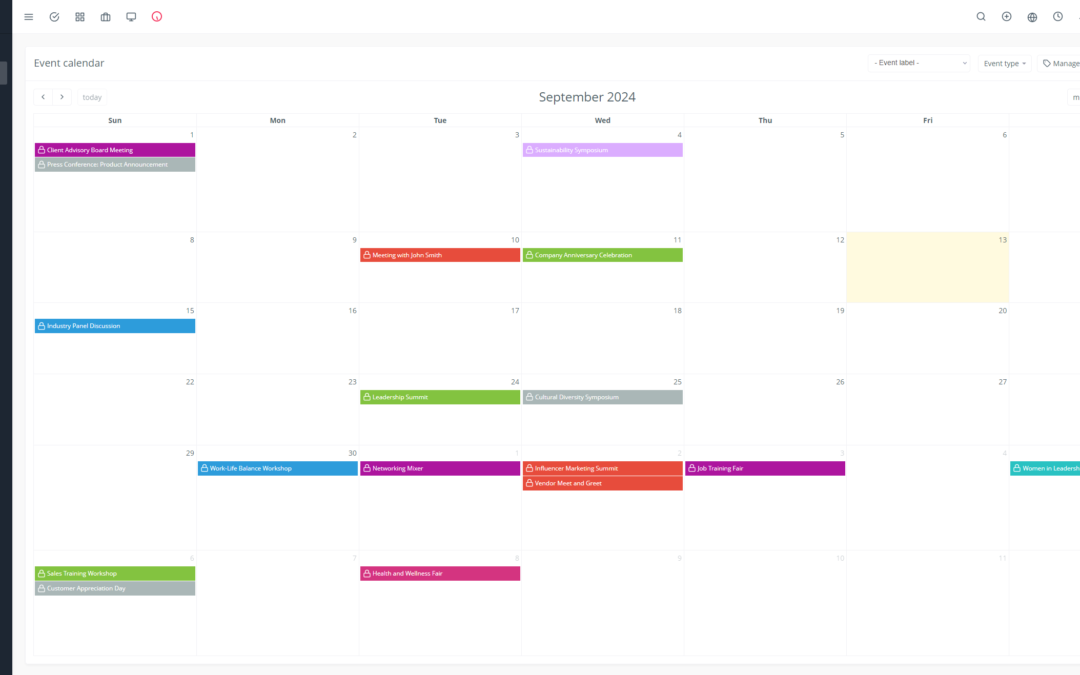In today’s business landscape, customers are more connected than ever and expect seamless, personalized experiences regardless of the channel they use. This is where CRM (Customer Relationship Management) and omnichannel come into play.
Introducing CRM and Omnichannel
CRM is a system that allows you to manage and track your interactions with customers. It centralizes all important information about your customers, such as their contact details, purchases, preferences, and interaction history.
Omnichannel, on the other hand, is a strategy that aims to provide a consistent and integrated customer experience across all contact channels, such as your website, mobile apps, social media, email, live chat, and phone calls. 📞
The Convergence of CRM and Omnichannel
CRM and omnichannel work in perfect synergy. CRM provides the necessary data to personalize the customer experience across all channels. Omnichannel, in turn, allows CRM to adapt to the customer’s various interactions, creating a continuous feedback loop.
Benefits of CRM and Omnichannel Integration
Integrating CRM and omnichannel offers numerous benefits for businesses:
Improved Customer Experience 📈: By providing a seamless and personalized experience across all channels, you increase customer satisfaction and strengthen loyalty.
Personalization and Targeting 🎯: By utilizing CRM data, you can tailor messages and offers to meet the individual needs of each customer.
Optimized Communication Channels 💬: You can identify your customers’ preferred channels and adapt your communications accordingly.
Process Automation 🤖: You can automate repetitive tasks, such as sending welcome emails or appointment reminders, freeing up time to focus on more strategic tasks.
Centralized Customer Relationship Management 🗄️: CRM centralizes all customer information, giving you a comprehensive view and enabling you to manage relationships more effectively.
Improved Customer Retention ❤️: By providing an exceptional customer experience, you retain customers and reduce churn rates.
Increased Revenue 💰: By personalizing offers and optimizing communication channels, you increase conversion rates and revenue.
Reduced Costs 📉: By automating processes and optimizing communication channels, you reduce operational costs.
Reduced Sales Efforts 💪: By providing sales teams with better information and tools, you help them close deals faster and more efficiently.
Enhanced Operational Efficiency 🚀: By centralizing data and automating processes, you improve the overall efficiency of your business.
Examples of Use Cases
Retail: A customer purchases an item on your website and then receives an email with personalized recommendations. They might also receive SMS messages to track their order and push notifications for exclusive promotions.
Financial Services: A customer contacts a financial advisor through live chat. The advisor can access all the customer’s information in the CRM and tailor their recommendations based on their profile and goals.
Healthcare: A patient schedules an appointment online and then receives a confirmation email with detailed instructions. They may also receive SMS reminders for appointments and push notifications for important health information.
Challenges of CRM and Omnichannel Integration
Integrating CRM and omnichannel presents some challenges:
Choosing the Right CRM Platform 💻: There are numerous CRM platforms available on the market. It’s important to choose the one that best meets your business’s specific needs.
Data Integration 🗄️: Integrating data from different channels can be a technical challenge. It’s important to ensure that the data is consistent and accurate.
Change Management 🔄: Implementing an omnichannel strategy can require significant organizational changes. It’s important to clearly communicate changes to employees and provide them with adequate training.
Performance Measurement 📈: It’s important to track and measure the performance of your omnichannel strategy to ensure you’re achieving the desired results.
Best Practices for Implementation
Understand Your Customer Needs 👂: Before implementing an omnichannel strategy, it’s important to understand your customers’ needs and preferences.
Simplify the Customer Experience 💡: It’s important to make the customer experience simple and intuitive, regardless of the channel used.
Provide Consistent Customer Support 🤝: Customer support should be consistent across all channels. Customers should be able to transition between channels without having to repeat their information.
Invest in the Right Technology 💻: Integrating CRM and omnichannel requires investing in the right technology. It’s important to choose a CRM platform and omnichannel tools that meet your business’s needs.
Continue to Learn and Adapt 🔄: The digital landscape is constantly evolving. It’s important to continue to learn and adapt to new technologies and trends.
Choosing the Right CRM Platform
There are many CRM platforms on the market, such as Salesforce, HubSpot, Zoho CRM, Microsoft Dynamics 365, and others. The choice of platform will depend on your business’s specific needs.
Omnichannel Tools and Technologies
Numerous omnichannel tools and technologies are available, such as chatbots, messaging platforms, marketing automation tools, social media management solutions, and others.
Future Trends in CRM and Omnichannel
Artificial Intelligence (AI) 🧠: AI will play an increasingly important role in CRM and omnichannel. AI-powered chatbots can provide 24/7 customer support, and AI can be used to personalize customer experiences and optimize marketing campaigns.
Internet of Things (IoT) 📡: IoT will enable businesses to collect additional data about their customers and personalize customer experiences more deeply.
Augmented Reality (AR) and Virtual Reality (VR)* 👓: AR and VR can be used to create more immersive and engaging customer experiences.
Conclusion and Outlook
Integrating CRM and omnichannel is essential for businesses that want to deliver exceptional customer experiences and succeed in today’s digital landscape. By adopting an omnichannel strategy, you can retain customers, increase revenue, and improve your business’s overall efficiency. 🚀

